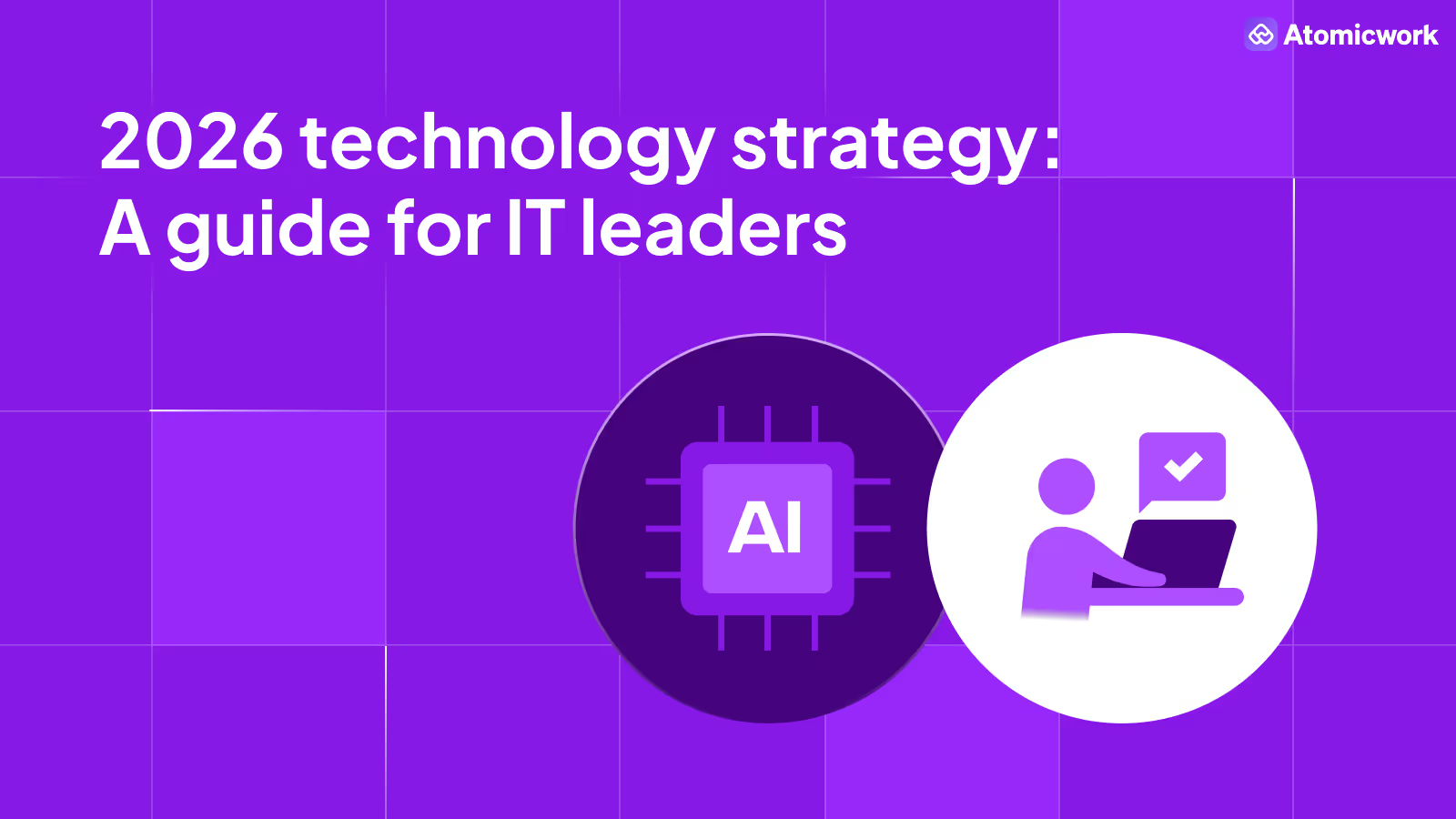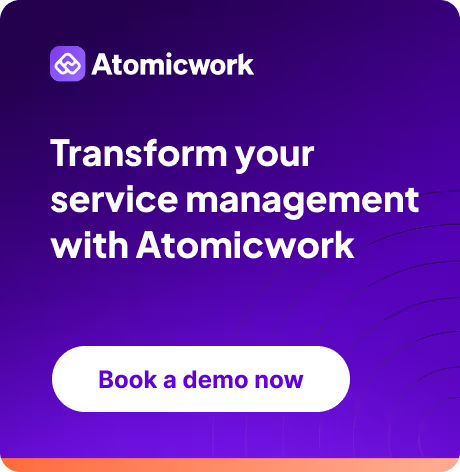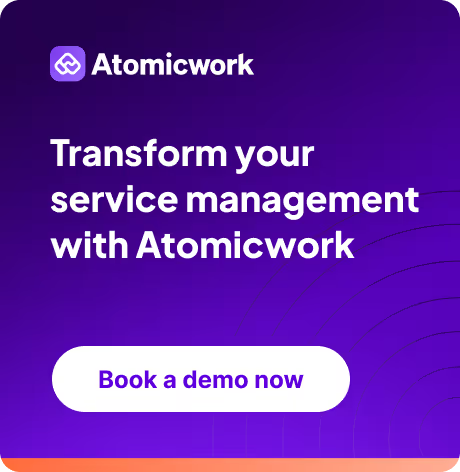David Williamson, CIO of Abzena, on scaling IT with data and AI

As Abzena’s CIO, David Williamson manages IT risks in a distributed team setup. He also thinks about executing IT strategies for cutting-edge biomedical treatments and ensuring the company’s systems and data are secure.
David has an impressive background—he majored in chemistry and served in the military before foraying into IT. With 20+ years of solid experience in IT, he's seen the good, the bad, and the ugly when it comes to IT leadership.
One piece of advice he often shares is to avoid being "data blind"—using analytics to make decisions helps employees as much as the C-suite.
I'd focus more on connecting my team's data to business outcomes than chasing the next big project. When you make data easy to access and use, people will find incredible ways to leverage it. There you have a winning IT strategy. David Williamson, CIO of Abzena
In this episode of Atomic Conversations, I chat with David about what it takes to lead in IT, the impact of data discovery on Abzena’s business growth, and how everything is evolving with the rise of AI.
CIO challenges in 2024 & beyond
When I asked David about the biggest challenges for CIOs, I expected him to talk about shrinking budgets or constant pressure to scale. But data is actually at the top of his list—the key differentiator every enterprise is trying to unlock.
“It’s those data silos and the security risks they create,” remarks David.
David isn’t an isolated CIO dealing with the evergreen IT problem. Many IT leaders today are having a hard time accessing, visualizing, and centralizing information scattered across different locations and platforms. Data silos not only dent employee productivity or hamper decision-making but can also cost leadership as much as $12.9 million annually– thanks to poor data management exacerbated by data silos.
David explains that data is like “intellectual property” for his clients. They want to break those data silos and leverage it like a trademark to get ahead in the market. But they often fall short because IT systems aren’t strong enough to manage security risks.
Beyond data, managing a highly skilled and talented workforce is not without its quirks. Ensuring that each of the 510+ employees in product development, manufacturing, and QA has the right tools and equipment to boost their productivity and collaboration is a herculean effort.
This is where David’s military background gives him an edge in handling conflicts and helping his employees make “smarter, faster, and better decisions.”
The roadmap to becoming data smart
For David, the issue was never having “too little data” but using the right, actionable, and relevant datasets to generate meaningful insights.
The process for his team is simple yet evolutionary:
- Cultivate data literacy and integrate data pipelines through data warehousing
- Automate data management to connect disparate data sources
- Establish a centralized repository
- Add context, metadata, and details like latency and dimensional volatility to remove redundancy.
- Zero in on data security with regular backups and strong access controls.
It's (data is) not the most exciting thing for business executives, but it's like building a solid foundation. David Williamson
On AI's role & why IT struggles to adapt
Imagine trying to make sense of the human body with all its complex biological processes and countless variables or figuring out how to create personalized treatment plans and predict disease outcomes—some of which we might not fully understand yet.
David notes how he believes AI can tackle this complexity. It processes massive amounts of data way faster than a human could, uncovering insights that would take us ages to find. He’s also a big proponent of AI assistants that automate tedious tasks so his team can focus on the strategic work.
In product development, AI analyzes cell characteristics to determine how to trigger a specific immune response or assess different strategies to predict the best course of action, whether it’s extending a medicine’s shelf life or improving drug efficacy.
'We're seeing incredible results with AI. Faster decisions, shorter turnaround times, and more accurate answers for our clients – it's a no-brainer. David Williamson
AI isn’t a silver bullet, though.
As a CIO, David knows that the real challenge comes when new technology—like AI—is rolled out without proper training and a culture that empowers employees from the ground up.
“New technology will pop up whether we’re ready for it or not. The challenge is deciding how to handle it as a CIO—do I help you experiment with this new technology or gatekeep until I can fully control its deployment? Ideally, you want the best of both worlds.”
Another issue, David points out, is the blind implementation of AI.
“AI is like the cherry on top of the sundae—you need a strong base to get the most out of it.” He notes that leadership often rushes into AI projects without setting up the necessary groundwork and implementing a robust data pipeline. Otherwise, you'll waste time and money.
A word of advice for up-and-coming CIOs
For David, the key to any successful initiative is setting up the right environment where data is connected and accessible and employees have creative ways to use that data and derive value from it. Equally important is helping the team realize their potential.
We, as CIOs, don’t need to be the smartest in the room, but we must cultivate a team that takes ownership and responsibility. David Williamson
“My role is to guide and support the team in making decisions, not to make all the decisions myself,” David says.
David also discusses building a good IT culture in our latest episode of Atomic Conversations. You can catch the entire conversation here.
Frequently asked questions

Faq answer paragraph

Faq answer paragraph

Faq answer paragraph

Faq answer paragraph

Faq answer paragraph

Faq answer paragraph

Faq answer paragraph

Faq answer paragraph

Faq answer paragraph

Faq answer paragraph
You may also like...

































